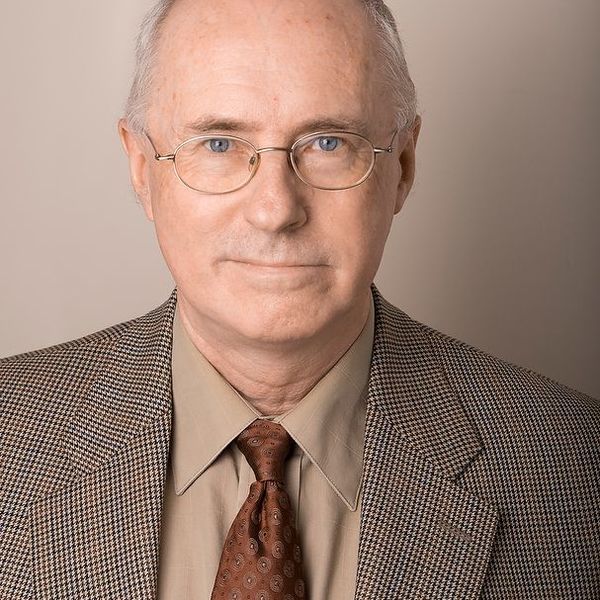However unwelcome the contributions of writers like Michael Tooley and Peter Singer may be to their fellow positionists, they have performed an inestimable service in clarifying the implication of the ultra personalist foundation of rights.
The Definition of Person as Depersonalization
Quite simply they have acknowledged what few were prepared to admit: that there is no essential difference between abortion and infanticide. The reason why the controversy over partial birth abortions has caused such discomfort is because the debate made the same connection factually clear. Late-term abortions are only possible if the fetus is actually killed before full delivery from the uterus. Yet it is one thing to acknowledge such painful medical details and another to declare they are morally permissible. Tooley and Singer have even gone further.
They have conceded that the same moral arguments justify infanticide for the first couple of months. The implication is advanced without the slightest hint of irony, unlike Swift’s modest proposal to alleviate poverty by making babies available for consumption. Tooley and Singer have not set out to shock us into a repudiation of abortion. On the contrary, their suggestions are advanced with the intention of demonstrating its permissibility. How, we might ask, was it possible for them to overcome the revulsion that most observers cannot suppress at the prospect of treating the tiniest infants as expendable?
The question is important because Tooley and Singer are not bad men. They speak out of the best humanitarian sentiments. In many ways they have reached their position by giving excessive weight to the very principle by which our public morality is grounded. Respect for persons, if it is the bedrock on which we erect an order of rights, implies that we know what persons are. To take the task of definition less seriously is to erode the very respect for persons we seek to enthrone. Tooley and Singer enjoy their notoriety largely because they have carried our principles further than we care to apply them. Could it be that the principles contain the seeds of their own subversion? Does respect for persons eventually bring us perilously close to the project of definition by which they are disrespected?
Let Us Look at the Argument
Respect for persons implies that we can specify what persons are. Tooley and Singer propose a list of criteria derived from our commonsense perception of what is necessary to identify someone as a person. The individual must be conscious, capable of deliberate engagement with the world around her or him, and therefore of knowing the self and the non-self in their fundamental distinction. Such individuals would therefore be open to relating to others, just as they would simultaneously acquire a relationship with themselves. Acquisition of a stable sense of identity, a concept of self, is the essential turning point for it is then that the person as person has been actualized. Relationships with others can be mutual. But, most importantly, it is only at the point of conscious self-identity that a person can wish for his or her own continued existence as a singular identity.
Legally this is the most crucial step since the assertion of a right to life is dependent on the awareness that one is a wholly separate and identifiable being. Without personal identity there can be no assertion of personal rights. To the extent that this is the fruit of a process of development, we may confidently assert that the entitlement to rights cannot be exercised until the process has reached its conclusion. Adult animals, Singer insists, possess a rudimentary notion of self and therefore entitlement to a corresponding rights respect. But the fetus and the newborn only gradually gain such a notion over a period of months and are therefore not a legitimate locus of rights claims. They cannot expect a certain mode of treatment because they do not yet possess the self-identity from which any expectation can be generated. The logic of infanticide is inexorable once we concede that only persons are the legitimate bearers of rights.
Newborn humans are no different from newborn kittens. Lacking even the minimal capacity of self-awareness, they can be disposed of in the same way. No injury is done to beings that cannot even know that deprivation of life is an injury to them.
Why Does Respect for Persons Ironically Cut Both Ways?
No doubt this reductio in extremis is one of the strongest arguments on the pro-life side, calling attention to the inconsistency of a cut-off criterion at any stage of fetal development. But our purpose here is not to applaud the strengths and weaknesses of the opposing sides. We pause only to note the irony. The strongest argument against abortion is provided by those who favor it. A deep illogic is at work within arguments that follow their logic only to find it overturned. Why does respect for persons cut both ways? Including right through the center of the human beings involved? Is the violence inflicted on bodies, albeit tiny ones, somehow already present in the language through which we think about them? Could it be that the heightening of reverence for the autonomy of the person has not gone far enough, to include a reverential heightening of the language in which the aspiration is itself expressed?
In other words, it appears that the personalist approach to the life issues has fallen short in a way that parallels the deficiencies of personalist philosophy as a whole. The mistake has been to assume we could talk about persons in a non-personalist way. Confident that we always know what we are talking about, we could not allow the personalist revolution to challenge the formulations in which it was expressed. Definition of the person was allowed to intrude, rather than submit to the realization that the person remains indefinable.
Or, this insight might even be conceded in general, but never allowed to penetrate our actual speaking. We remain the owners of language, no matter what the content may acknowledge, for speaking establishes our superiority to the said. We might even have been able to get away with this invincibility, except when it came to discoursing about persons. Then we could not quite shake the awareness that we too are persons and incapable of sitting in dispositive judgment on other persons. We can only regard others as persons to the extent that we enter into conversation with them. The other must always be a Thou if he or she is to escape becoming an It.
Responsibility Is Prior to Definition
When we talk about persons as beings whose autonomy must always be held sacred, we mean that they can only be known as persons through their free self-disclosure. The philosophical naiveté of the attempt to define the person is evident once the project is contrasted with the inner access to the other that is the only basis for our knowledge of others. But the putative definition fails also on its own terms. The very meaning of autonomy, as that which follows its own law, is irreducibly self-determining. What is the value of such a definition, if it is not to proclaim that no definition is possible?
A person is, strictly speaking, indefinable. Otherwise he or she could not be a fount of limitless self-enactment and self-disclosure. No matter what a person says or does, he or she is not what is said or done. Whatever the expression, the person has already escaped it. This is the very meaning of what it is to be a person. One is always that which escapes the modes of tangible presence, otherwise one could not carry out the diurnal process of self-unfolding. A person remains a mystery, unfathomable even to himself or herself. Whatever persons are, whatever definition is advanced, even the most exhaustive enumeration, they are not that.
A gap has intervened that is not a sheer absence but a mark of the infinity from which each one springs. The possibility of endless love and limitless conversation between human beings arises from this evanescence of what, if it were to be present, if it were to be identified or defined, would suffocate life within the black hole of finitude. Inexhaustibility, unfathomability, unattainability are the marks of the person, but they are always marks in the mode of what escapes all identification.
There are indeed no marks, only traces of what cannot be traced because the person has already moved beyond the place occupied in tracing. It is this uncapturability that Kant and his successors sought to designate with the term “autonomy,” not its reduction to a faculty psychology to distinguish those who can speak for themselves from those over whom we may work our will.
Editorial Note: This excerpt comes from Politics of the Person as the Politics of Being (Notre Dame, Indiana: University of Notre Dame Press, 2017), 41-44. Reprinted by permission of University of Notre Dame Press.
Featured Image: Édouard Manet, The Railway [detail], 1873; Source: Wikimedia Commons, PD-Old-100.

